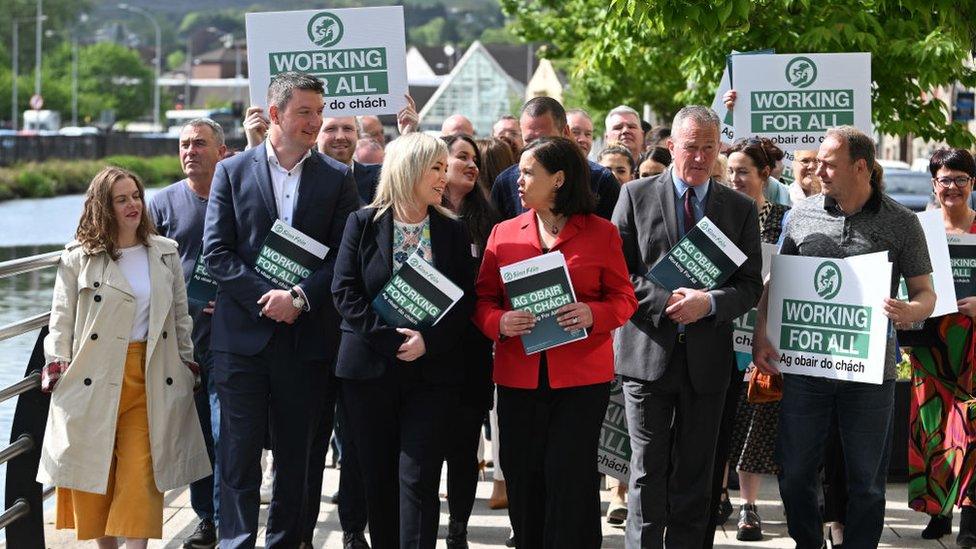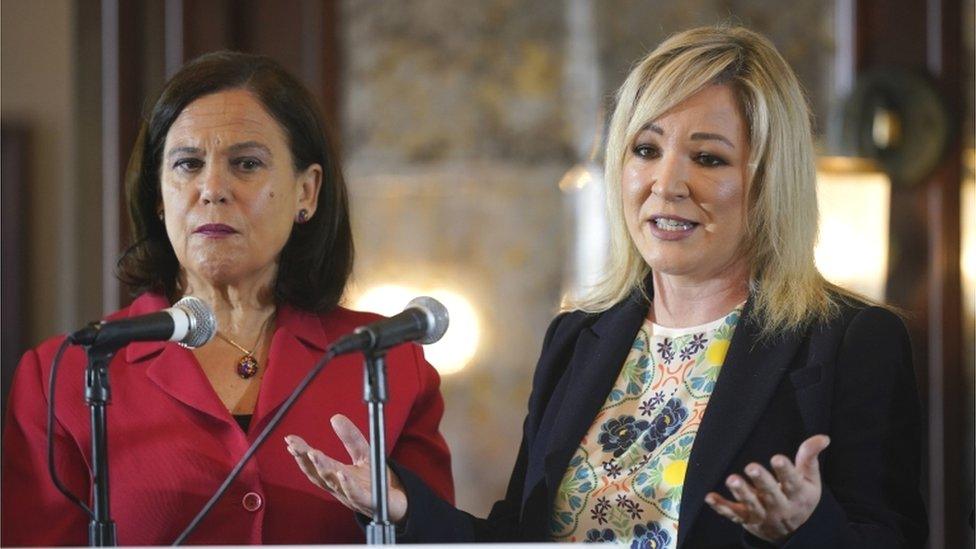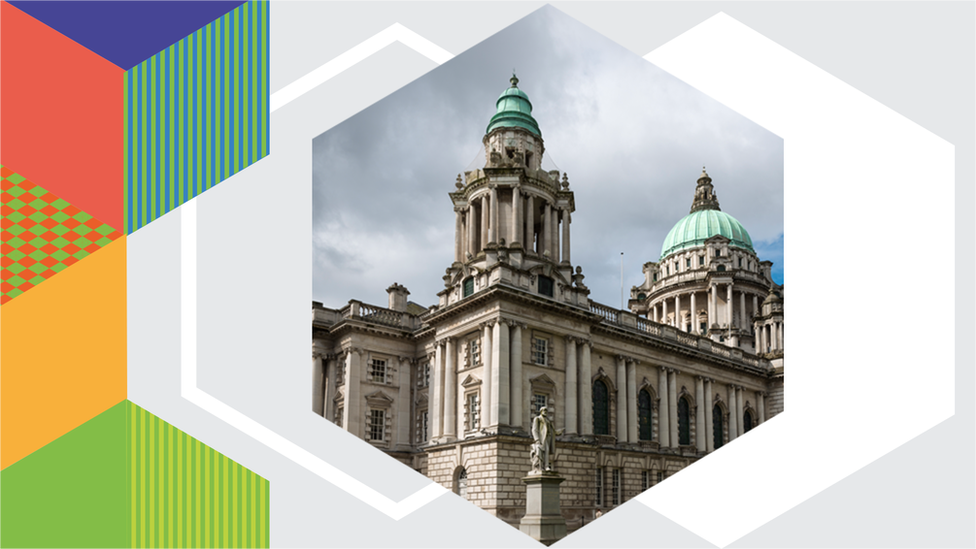NI council elections: Send signal to DUP over boycott, Sinn Féin says
- Published

Sinn Féin launched its manifesto in Newry on Tuesday
The council election is an opportunity for voters to send a signal against the DUP's Stormont boycott, according to Sinn Féin's vice president.
Launching the party's manifesto, Michelle O'Neill said this month's poll was more important than ever.
The party is running 162 candidates, the most it has ever run for a council vote.
In the last council election in 2019, it won 105 seats and was the second largest party in local government.
Since then, it has become the largest party at Stormont, but Ms O'Neill has been unable to take up her post as first minister.
That is because of the Democratic Unionist Party's (DUP) refusal to re-enter a power-sharing executive due to its concerns about how post-Brexit trade checks affect Northern Ireland.
'No other option'
Ms O'Neill addressed her party's manifesto launch in Newry, County Down, on Tuesday.
"This council election is more important than ever as one party continues to block an executive," she said.
"It can send a signal and show support for a party that is prepared to get government back up and running and re-enforce positive leadership."

The party is running 162 candidates, the most it has ever ran in a local election.
Sinn Féin President Mary Lou McDonald added there was no excuse for the DUP to remain out of the institutions at Stormont following last May's assembly election.
"We cannot stagger on indefinitely, I very much hope they will do the right thing.
"There is no other option."
The party's manifesto pledges in this election include:
Promoting power-sharing and partnership in local government
Supporting small local businesses
Strengthening workers' rights to protect against low pay
Improving active travel infrastructure including across the border
Securing a date for a border poll
Ms McDonald said the preparations for a referendum on Irish unity needed to happen now and called for the Irish and UK governments to work to "navigate and manage" that.
She did not name her preference for a date, but said there needed to be "clarity".
"We shouldn't be waiting for a date, we should be having those conversations now," she continued.
- Published17 May 2023

- Published2 February 2024
